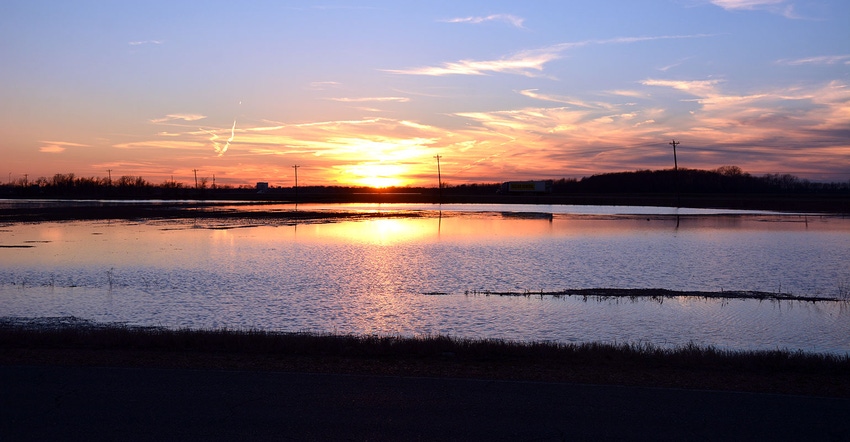February 23, 2019

Continuously wet conditions further delayed the work of field preparation throughout much of Arkansas during the week ending Feb. 22, as intermittent rains continue to saturate soils in the state.
At production meetings organized by the University of Arkansas System Division of Agriculture in January and February, both growers and agronomists have noted the delay in field preparation for the 2019 planting season.
Jarrod Hardke, rice agronomist for the Division of Agriculture, said Feb. 22 that it appears increasingly unlikely that any growers in the state will be able to plant rice on March 15, typically the start of the early planting season.
“Assuming it ever stops raining, you’re looking at seven to 10 days of dry weather before you can get a tractor out in a field,” Hardke said. “Seventy percent of rice acres in this state are rotated with soybeans, and the vast majority of those soybean fields haven’t been worked in any manner.”
Many growers will need to till their fields to a significantly greater degree than in typical years, Hardke said, due to widespread rutting caused by the 2018 harvest.
“We’re not talking about standard tillage,” Hardke said. “This will require excessive tillage.”
According to data from the National Weather Service’s Little Rock station, every county in the southeastern half of Arkansas received 30 to 50 inches of rain between Aug. 22, 2018, and Feb. 22, 2019. The measured rainfall ranged from 110 to 200 percent of typical rainfall within the same six-month period.
Fertilizer needed
Furthermore, many fields in the state likely still require fertilization.
Soil testing, which growers use to determine the nutrient needs of a field, typically precedes fertilization. Linda Moore, a technician with the University of Arkansas Soil Testing Laboratory in Marianna, Arkansas, said the laboratory had received about 13,800 soil samples from agricultural plots around the state from Jan. 22-Feb. 22, a notable decline from the norm, which is closer to 18,500 samples during the same period.
Robert Goodson, Phillips County Extension agent for the Division of Agriculture, said most fields in his county are saturated.
“The Mississippi River is at 43.8 feet, with a flood stage of 44,” Goodson said. The river is predicted to crest at 47.5 feet on March 5.
Other rivers in the state are also at or near flood stage.
“This is really affecting corn producers,” he said, adding that most corn in the county will probably need to be late-planted, if at all.
About the Author(s)
You May Also Like






